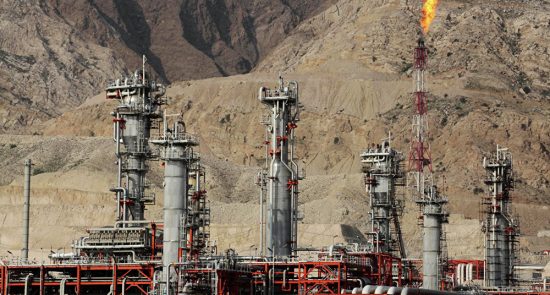Asia May 12, 2019
Short Link:Pakistan ‘Bows Before’ US Pressure, Ditches Joint Pipeline With Iran
The move comes after the US slapped fresh sanctions on Iran related to the Islamic Republic’s iron, steel, aluminium, and copper sectors, with Washington threatening to impose more restrictive measures on Tehran.
Ariana News Agency-
Islamabad has announced that it is unable to implement the Iran-Pakistan gas pipeline project due to the US’ anti-Iranian sanctions, but added that it would go ahead of executing the project only if international sanctions on Iran were lifted. If completed, the pipeline would deliver 21.5 million cubic meters of gas per day to Pakistan.
“Under present US sanctions on Iran, it is impossible to execute the IP [Iran-Pakistan] gas pipeline project and we have conveyed it to them [Iran] in writing, recently. We cannot risk US sanctions by going ahead with the project as America has clearly said that anybody who will work with Iran will also be sanctioned”, Mobin Saulat, the managing director of the Pakistani energy company Inter State Gas, was cited by Arab News as saying.
Referring to Iran’s readiness to turn to an arbitration court over Islamabad’s failure to adhere to an IP deal, Saulat said that Islamabad has time “till August this year to legally respond to Iran’s legal notice and settle the issue through negotiations”.
“We may not have a weak case if Iran moves the international court. We are trying to handle it professionally”, he pointed out.
The statement comes as Bilawal Bhutto-Zardari, chairman of the left-wing Pakistan People’s Party (PPP) berated the country’s government for “bowing before international pressure” and failing to complete the IP project.
“PPP initiated this project at height of international sanctions because we put Pakistan first. People pay the price for weak leaders in expensive gas bills”, he underscored.
The developments followed the US announcement in late April that there will be no more exemptions from sanctions for countries buying Iranian oil.
The White House stressed that the decision is aimed “to bring Iran’s oil exports to zero, denying the regime its principal source of revenue”.
Earlier this week, Tehran announced that it would partially discontinue its commitments under the 2015 Iran nuclear deal, also known as the Joint Comprehensive Plan of Action (JCPOA), and give Europe 60 days to ensure Iran’s interests were protected under the agreement.
Shortly after, US President Donald Trump imposed additional sanctions on Iran related to its iron, steel, aluminium and copper sectors, pledging to slap more restrictions if Iran’s behaviour is not changed.
Iran’s Foreign Ministry spokesman Abbas Mousavi, for his part, emphasised that the US sanctions on Iranian metals run counter to international norms.
Trump announced the re-imposition of anti-Iranian sanctions back on May 8, 2018, when he signalled Washington’s withdrawal from the JCPOA. He also threatened to slap secondary sanctions on all those foreign companies that do business with the Islamic Republic.










